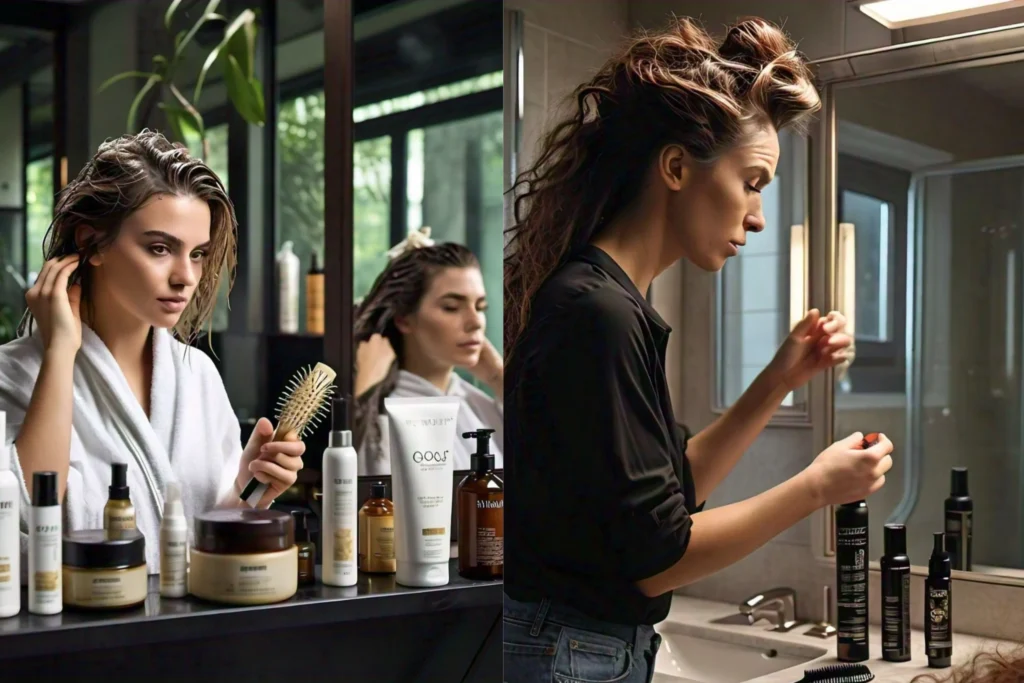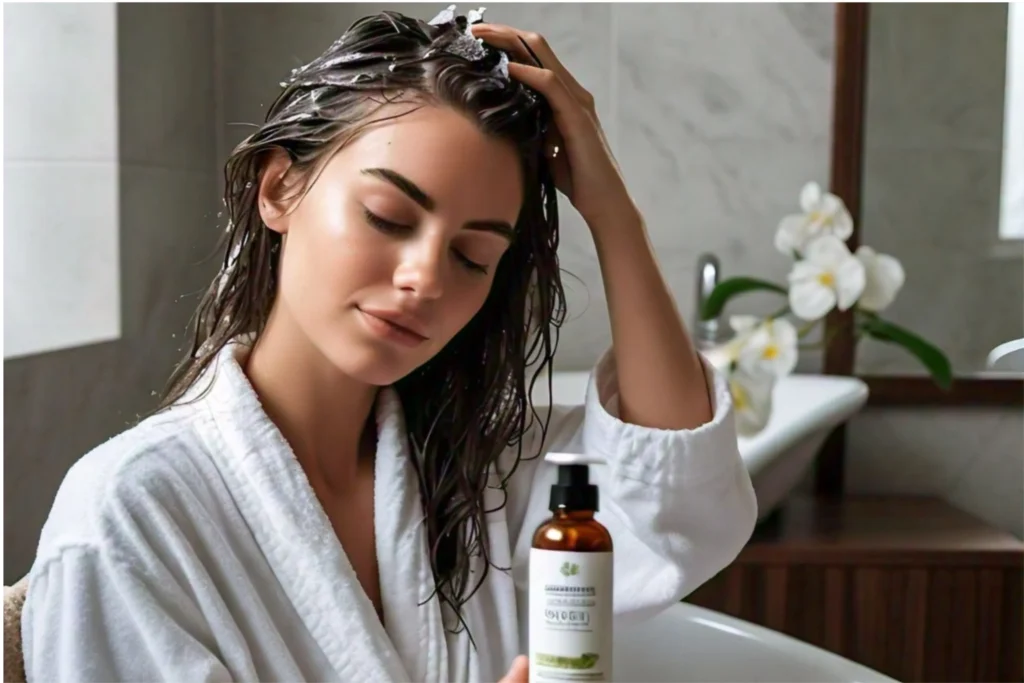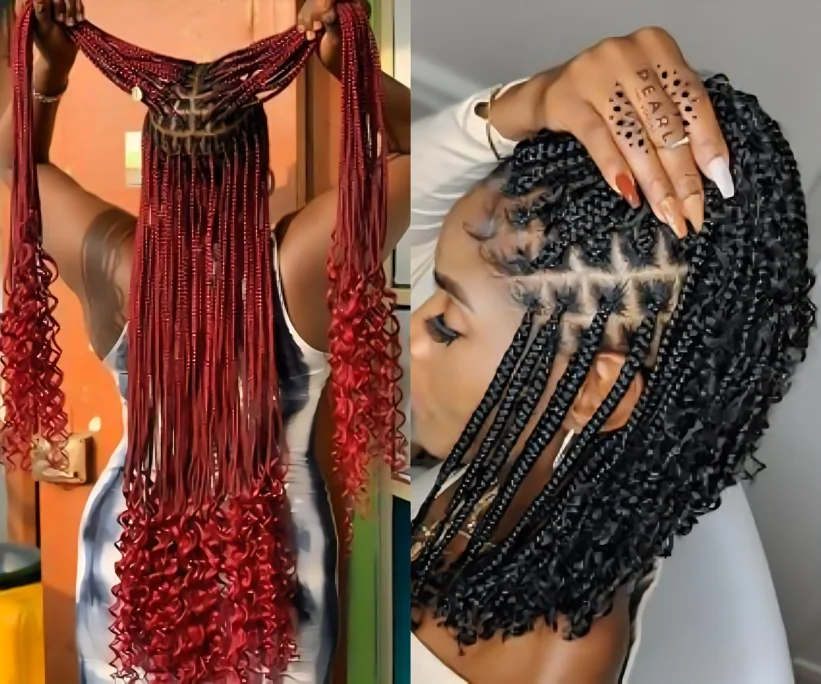Here are some essential hair Care tips to get rid of a greasy scalp and help you maintain a healthy balance and keep your scalp feeling fresh. Dealing with a greasy scalp and oily hair can be frustrating, but you can effectively manage it with the right care and routine.
Causes of Greasy Scalp
Before looking for remedies, it is important to understand why your scalp might be producing excess oil. Genetics, hormonal changes, diet, and even stress levels can contribute to oily hair. The scalp produces sebum, a natural oil that protects and moisturizes your hair. However, overproduction of sebum can lead to greasiness and a weighed-down feeling.
HAIR CARE TIPS FOR GREASY SCALP
Choose the Right Shampoo and Washing Frequency
Selecting the right shampoo is crucial. Look for products specifically formulated for oily hair or clarifying shampoos that effectively remove excess oil and residue without stripping your scalp completely. It is generally recommended to wash your hair more frequently if you have a greasy scalp, possibly daily or every other day. This helps remove accumulated oil, sweat, and dirt that can exacerbate greasiness.
Shampooing Techniques
When shampooing, concentrate on massaging the product into your scalp rather than vigorously scrubbing your hair. Use your fingertips to gently massage the shampoo into your roots to lift oil and impurities. Avoid using your nails, this can irritate the scalp and stimulate more oil production.
Conditioning Carefully
Conditioners are designed to moisturize and detangle hair but can contribute to greasiness if you do not apply them properly. Apply conditioner primarily to the ends of your hair, where it tends to be drier, and avoid the scalp area. This prevents additional oil buildup on your scalp.
Air Drying vs Heat Styling
Minimize heat styling tools such as blow dryers and straightening irons, as they can stimulate oil production and contribute to greasy hair. Instead, allow your hair to air dry naturally whenever possible. This not only reduces heat damage but also helps in extending the time between washes.
Also Read: 10 Essential Natural Hair Care Tips to Prevent Hair Fall
Use Products Specifically for Oily Hair
Opt for shampoos and hair care products designed for oily hair types. These products typically contain ingredients that help control oil production and keep your hair looking fresh longer. Clarifying shampoos with stronger cleansing agents can remove excess oil and product buildup.
Be Gentle with Your Hair and Scalp
Treat your hair and scalp gently to avoid overstimulation, which can trigger more oil production. Use a wide-tooth comb to detangle hair rather than brush aggressively. When styling, avoid pulling or tugging at your hair, this can also lead to increased oil secretion.
Thorough Rinsing
After shampooing and conditioning, spend extra time rinsing your hair thoroughly. Ensure that all shampoo and conditioner traces are completely washed out, as any residue left behind can weigh down your hair and contribute to greasiness.
HOME REMEDIES TO MANAGE OILY HAIR
Dealing with oily hair can be effectively managed with natural remedies that promote a healthy scalp and control excess oil production:
Lemon Juice Hair Wash
Fresh lemon juice mixed with water is an excellent natural remedy to fix oily hair. After shampooing, use the lemon juice mixture as a final rinse. The acidity of lemon helps to remove excess oil and sebum from your scalp, leaving your hair feeling fresher and less greasy.
Apple Cider Vinegar (ACV)
Dilute apple cider vinegar with water and use it as a hair rinse. ACV helps to balance the pH of the scalp, which in turn reduces oiliness. It also has antibacterial properties that can benefit scalp health and overall hair condition.
Baking Soda Clarifying Treatment
Make a paste of baking soda and water and apply it directly to your scalp. Leave the mixture on for a few minutes before thoroughly rinsing it out. Baking soda acts as a clarifying agent, effectively removing excess oil and product buildup from the hair and scalp.
Aloe Vera Gel
Apply fresh aloe vera gel directly to the scalp, it provides soothing properties and helps regulate oil production. Aloe vera gel moisturizes the scalp without leaving it greasy, making it an ideal natural home remedy for oily hair.
Green Tea Rinse
Brew green tea and allow it to cool down to room temperature. Use the cooled green tea as a final rinse after shampooing. Green tea contains antioxidants that help to regulate oil production on the scalp while adding a healthy shine.
CERTAIN HAIR CARE TIPS TO MAINTAIN A BALANCED SCALP
Diet and Hydration
A balanced diet rich in vitamins and minerals can promote healthy hair and scalp. Drink plenty of water to stay hydrated, which helps regulate oil production.
Avoid Over-Washing
While it is important to keep your scalp clean, over-washing can strip away natural oils and cause your scalp to produce even more oil to compensate. Find a washing frequency that works best for your hair type and lifestyle.
Consider Scalp Treatments
Incorporate scalp treatments such as mask or exfoliant once a week to remove dead skin cells and excess oil buildup. Look for products containing ingredients like tea tree oil or salicylic acid, which have purifying properties.
Manage Stress
Stress can exacerbate oily scalp issues. Practice stress-reducing techniques such as yoga, meditation, or regular exercise to help maintain a healthy balance.
Managing a greasy scalp requires a combination of proper hair care practices, using suitable products, and understanding your scalp’s unique needs. By following these essential and effective tips to maintain a consistent routine, you can keep your scalp feeling fresh, balanced, and healthy. Remember, it is about finding the right balance between managing oil production and preserving the natural oils that protect your hair and scalp. With patience and the right approach, you can achieve healthier-looking hair that stays grease-free longer.
FAQs
What causes a greasy scalp?
Excessive sebum production is the main cause.
How often should I wash oily hair?
Washing 2-3 times a week is ideal for greasy hair.
Can using dry shampoo help reduce greasiness?
Yes, dry shampoo absorbs excess oil between washes.
Does diet affect scalp oiliness?
Yes, a high-fat diet can increase scalp oil production.
Is it bad to condition oily hair?
No, just apply conditioner to the ends, avoiding the scalp.
For more Content Follow us on Facebook , Instagram and Pinterest

















